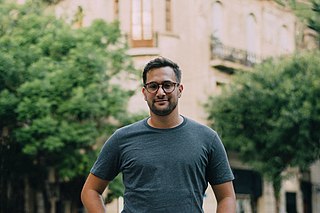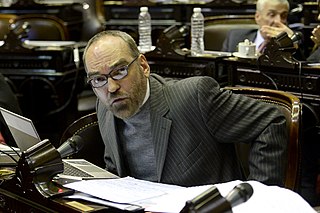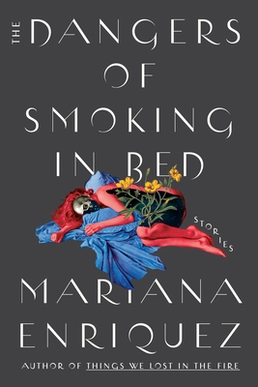
The University of Buenos Aires is a public research university in Buenos Aires, Argentina. It was established in 1821. It has educated 17 Argentine presidents, produced four of the country's five Nobel Prize laureates, and is responsible for approximately 40% of the country's research output.

Alberto Ángel Fernández is an Argentine politician, lawyer, and academic who served as president of Argentina from 2019 to 2023.

Abortion in Argentina is legal as an elective medical procedure during the first 14 weeks from conception. The abortion law was liberalized after the Voluntary Interruption of Pregnancy Bill was passed by the National Congress in December 2020. According to the law, any woman can request the procedure at any public or private health facility. Doctors are legally bound to either perform it or, if they are conscientious objectors, refer the patient to another physician or health facility. Only three other Latin or South American countries legalised abortion on request nationwide before Argentina did: Cuba in 1965, Guyana in 1995 and Uruguay in 2012. According to polling in 2021, around 44% of Argentines support the legalization of abortion on request; other polls showed 50–60% of Argentines opposed the bill.

Carlos Eduardo Robledo Puch, also known as The Angel of Death and The Black Angel, is an Argentine serial killer. He was convicted of at least eleven murders, one attempted murder, seventeen robberies, involvement in one rape and one attempted rape, one count of sexual abuse, two kidnappings, and two thefts. Most of the offenses occurred in the northern area of Greater Buenos Aires.

Andrés Neuman is an Argentine writer, poet, translator, columnist and blogger.

Mariana "Lali" Espósito is an Argentine singer, actress, dancer, and model. She began her career in 2003 in the children's telenovela Rincón de Luz. Espósito continued to build her acting and singing career with subsequent supporting roles in other telenovelas such as Floricienta and Chiquititas. However, it was her main role in the telenovela Casi Ángeles that really propelled her to fame, making her a household name in Latin America, the Middle East, and Europe. From 2007 to 2012, she was a part of the popular teen pop band Teen Angels, which originated from the television series Casi Ángeles. The group was commercially successful and toured throughout Argentina and countries such as Israel, Spain, Italy, and Latin America.

Mariana Enríquez is an Argentine journalist, novelist, and short story writer. She is a part of the group of writers known as "new Argentine narrative". Her short stories fall within the horror genre, and have been published in international magazines such as Granta, Electric Literature, Asymptote, McSweeney's, Virginia Quarterly Review and The New Yorker.

Cannabis in Argentina is regulated by the Penal Code of Argentina, which prohibits its possession, cultivation, and supply, except for authorized medical purposes. Official statistics estimate that cannabis is used by 7.8% of Argentina's population.

Resistencia Ancestral Mapuche is an indigenous organization advocated to the creation of an autonomous Mapuche state in Araucanía, which is, they say, the revindication and recovery of former Mapuche lands. They are mostly renowned for their violent methods, often recurring to arson and poaching and armed attacks against Argentine National Gendarmerie. It operates in the Patagonia region of Argentina and Chile, seeking to secede territories of both countries to create an independent Wallmapuche country for the Mapuche nation. It is associated with the Coordinadora Arauco-Malleco, considered a terrorist organization by the Chilean government.

Joan Milton Cwaik is an Argentinian technology communicator, entrepreneur, speaker and technologist. In 2020 he published his first book 7R: Las siete revoluciones tecnológicas que transformarán nuestra vida. In 2021 he released his second book, El Dilema Humano: Del Homo Sapiens al Homo Tech.
Megan McDowell is an American literary translator. She principally translates Spanish-language works into English. Originally from Kentucky, she studied English at DePaul University in Chicago. Upon graduation, she worked at the Dalkey Archive Press. She then moved to Chile, moving back to the US after three years to study translation at the UT Dallas. Her first work of translation was Alejandro Zambra's The Private Lives of Trees. Since then, she has collaborated with Zambra on several more books.

The Patria Grande Front is a leftist political front in Argentina founded by activist and social leader Juan Grabois. It was founded in October 2018, ahead of the 2019 Argentine general election, in support of the candidacy of Cristina Fernández de Kirchner and in opposition to the government of Mauricio Macri. As of October 2020 it did not count with official party status nationwide.

Fernando Adolfo Iglesias is an Argentine journalist, writer, politician, and volleyball player. Currently he is a National Deputy elected in Buenos Aires. He is a member of the center right party Republican Proposal.

Transgender literature is a collective term used to designate the literary production that addresses, has been written by or portrays people of diverse gender identity.
Camila Fabbri is an Argentine writer, playwright and actress.

Sorrentinos are a type of Argentine ravioli, but larger, more circular and originally wraped without fluted edge. The dough is made with flour and eggs, and the filling of the original recipe consists of York ham and mozzarella.

The Dangers of Smoking in Bed is a psychological horror short story collection written by Mariana Enriquez. The collection was first published in Argentina in November 2009. The book was translated to English in 2021 by Megan McDowell.

VisualPolitik is a YouTube channel, created by the Spaniards Enrique Fonseca, Alberto Rodríguez Fernández-Castaño and Enrique Couto Bueno, characterized by presenting topics on international politics, although their videos also deal with current economics and cryptocurrencies. At the beginning of 2022, the channel had around 2.9 million subscribers and has versions in English and German.
















